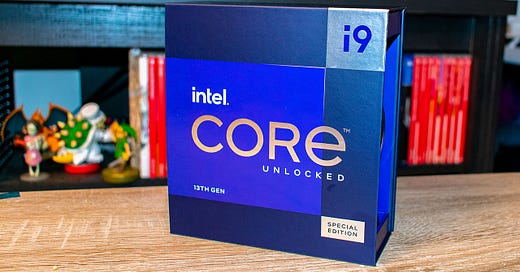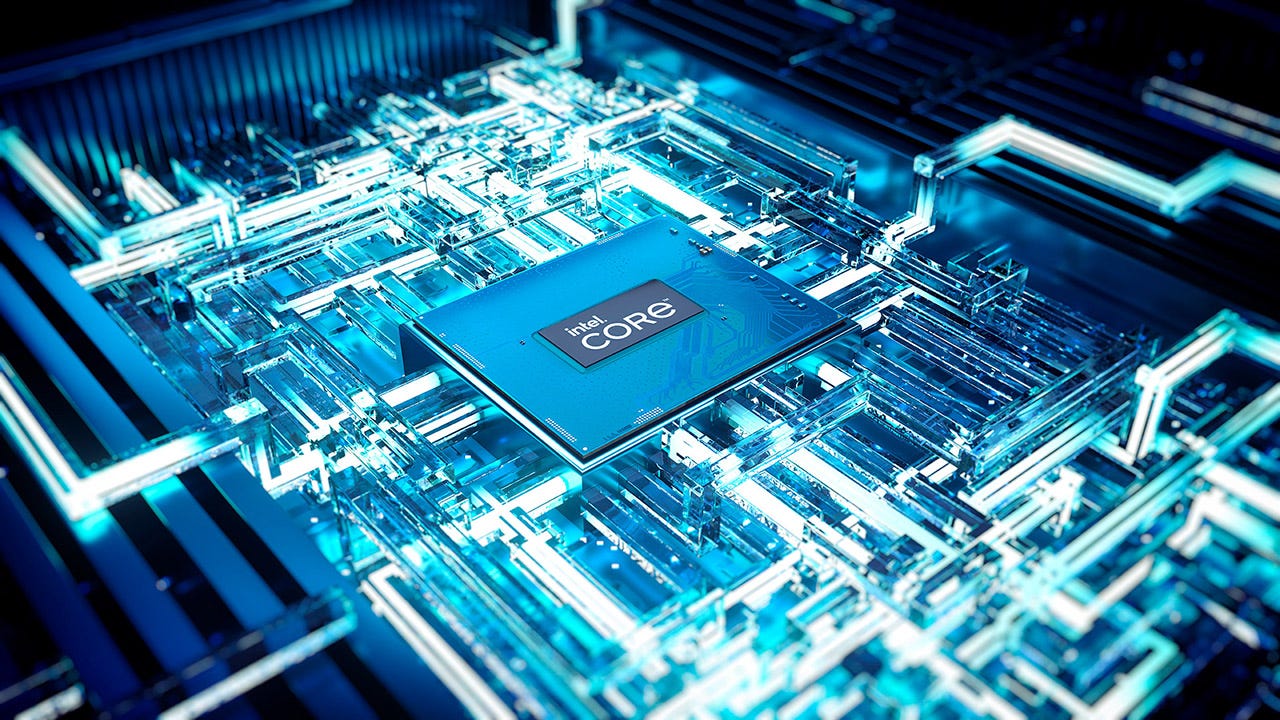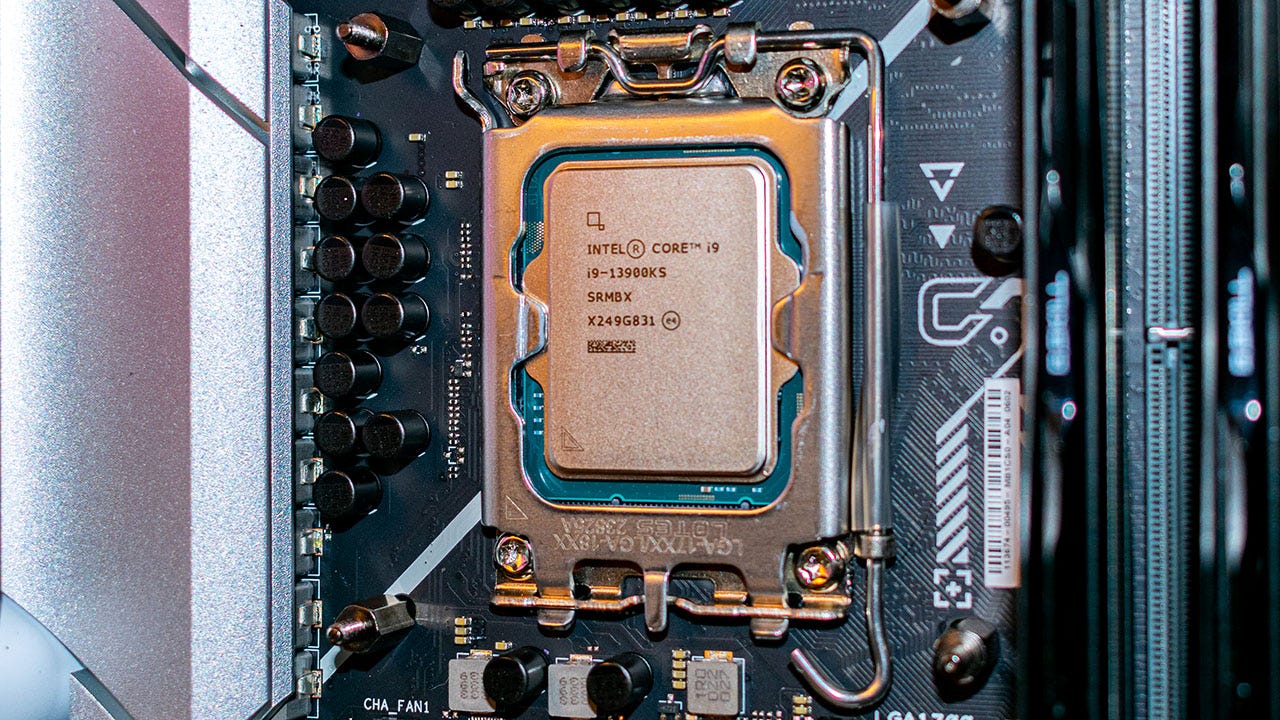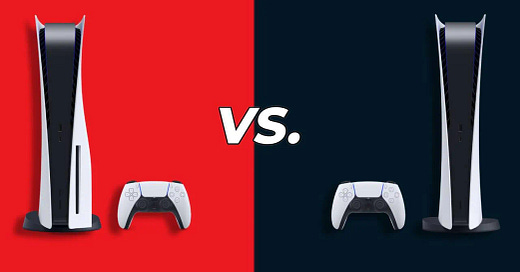
Intel 14th gen: architecture, release window and what we want to see
Reports of an Intel 14th gen CPU suggest that the company is looking to extend its performance lead
The buzz around Intel’s 14th gen processors continues to grow, even though a release date is still a few months away. That hasn’t stopped speculation and rumors from swirling about these highly anticipated chips, however.
Intel recently signaled the end of support for its 11th-gen Rocket Lake processors with a Product Update Notification. While this doesn’t confirm anything about the 14th gen processors, it could be a sign that Intel is making room for new products later this year.
➡️ The Shortcut Skinny: Intel 14th generation
😍 Intel 14th-gen chips are ready for manufacturing
🤔 Intel’s current processors only came out in October 2022
🏆 AMD needs to catch up
🤝 Intel 14th-gen processors will likely be two different architectures
According to Intel’s roadmap, Meteor Lake – the architecture likely behind some of the 14th gen laptops – is manufacturing-ready (thanks, PCWorld). However, there are also rumors that Intel’s next desktop processors, like the Intel Core i9-13900KS, will be based on a refresh of the current Raptor Lake architecture.
The exact release date for Intel’s best CPUs remains unknown, especially since the company just refreshed its laptop lineup at CES 2023. But rest assured, we’ll keep you updated with all the latest Intel 14th gen rumors – so keep us bookmarked!=
Intel 14th gen specs: two architectures?
While there haven’t been any official reports about the specs of Intel’s 14th gen processors, there are hints that they may not be based on an all-new architecture as some expect. It was initially assumed that these new CPUs would be based on the Meteor Lake architecture, but according to a report from Hardware Times, this may only be for laptops.
This is because Intel is reportedly planning to reduce the performance cores in Meteor Lake to improve battery life and efficiency. This would likely require a new socket for use in the best gaming PCs.
Instead, rumors suggest that Intel’s 14th-gen processors will be a refresh of Raptor Lake - the architecture behind the current 13th-gen desktop processors. This wouldn’t be the first time Intel has done this - the popular Intel Core i9-9900K was based on a refresh of Coffee Lake, Intel’s 8th-gen Core architecture. However, these rumors come from leaks reported by HotHardware, so it’s always best to take them with a grain of salt until we hear official word from Intel.
Regardless, Intel’s 13th-gen Raptor Lake processors are incredibly fast. So even if the Intel 4 manufacturing process takes another year to make it into an actual CPU on store shelves, it wouldn’t be a huge deal.
More efficiency for Meteor Lake?
Rumors are starting to emerge that Intel is planning big things for its 14th gen processors – especially when it comes to laptops. According to a leak found by Twitter user OneRaichu, Intel’s Meteor Lake CPUs could boast a massive 1.5x increase in performance per watt. This would likely result in both improved performance and longer battery life – two key factors for the best gaming laptops.
While it’s likely that Intel will split its 14th-gen processors into separate microarchitectures for desktop and mobile, these rumors suggest that the company is targeting significant upgrades for its laptop-based Meteor Lake chips.

If that wasn’t enough, in a reply to the original tweet One Raichu also suggested Intel’s next processors will feature an internal GPU that’s twice as powerful as the one found in 13th-gen Raptor Lake chips. If that’s true, it’ll make Intel’s chip the best GPU that’s built into a laptop processor. Hopefully, that’ll mean it’ll be better for playing the best PC games.
Is the Intel 14th-gen release date soon?
Intel is currently leading the pack when it comes to CPUs, outpacing its rival AMD according to our reviews and in-depth testing. Our review of the Intel Core i9-13900KS review shows how the company has reset the playing field and taken the lead.
But AMD isn’t sitting idly by. Rumors suggest that the company’s next-gen Zen 5 architecture could see a shift towards a hybrid chip design – similar to what propelled Intel’s 12th-gen Alder Lake and 13th-gen Raptor Lake processors to success (thanks, RedGamingTech). This approach uses slower “efficient” cores for background tasks while more powerful “performance” cores handle demanding tasks like content creation and gaming.
AMD’s previous reluctance to adopt a hybrid chip design may have contributed to its lag behind Intel with its Ryzen 7000 processors. But with rumors that AMD may change its approach, Intel will need to stay ahead of the game with its 14th-gen processors.
The CPU battleground is set to heat up even further in the coming year as both companies continue to innovate. We’ll just have to wait and see what they have in store.
Intel 14th-generation CPUs: what we want to see
No matter which architecture Intel chooses for its 14th gen desktop processors, we’re hoping to see the company continue to push the boundaries of performance. While Alder Lake and Raptor Lake have certainly done this – as demonstrated by our review of the Core i9-13900KS – Intel needs to maintain its momentum.
In the past, Intel has grown complacent with its processors, clinging to its “best CPU for gaming” title while AMD’s Ryzen chips outperformed Intel Core chips in almost every other workload – including gaming.
But those days seem to be over. The Intel Core i9-13900K is not only the best CPU for gaming, but it’s also arguably the best CPU on the market overall. Intel has shown that its hybrid chip design is the way forward, and it’s likely that AMD will follow suit.
We’re excited to see what the Intel Core i9-14900K will bring later this year. Here’s hoping it’s something truly incredible.
Updated: April 12, 2023


















